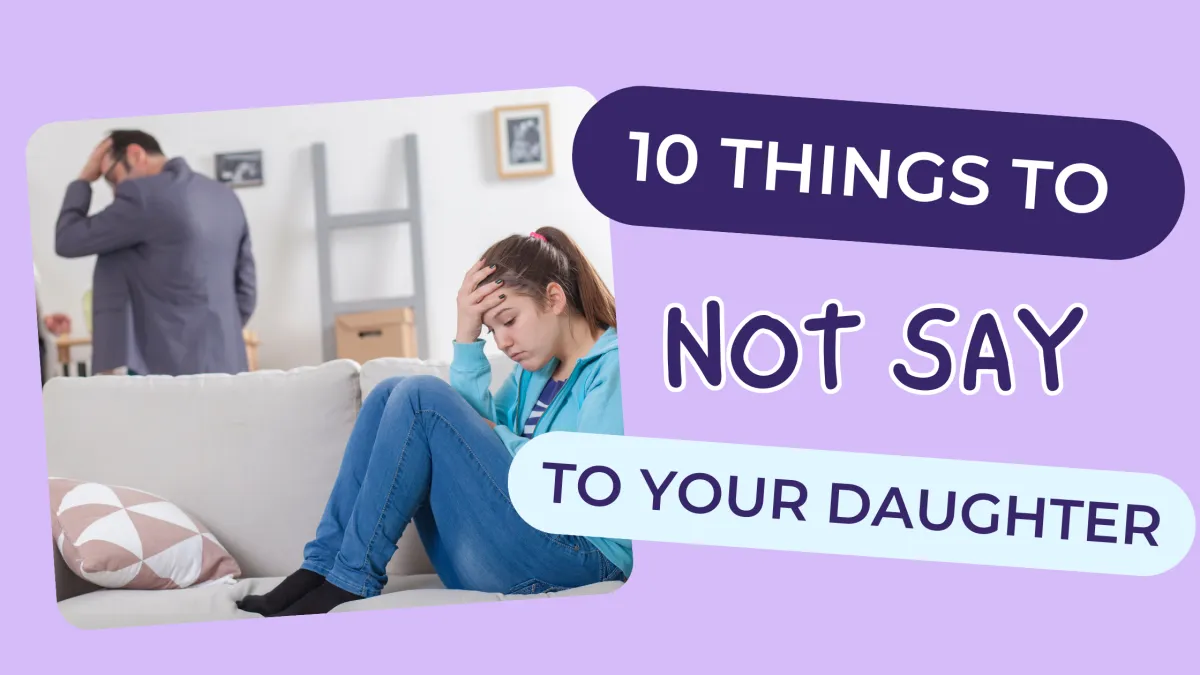
Tips and Tools for Fathers Talking With Their Daughters During Puberty
The way we talk to our daughters becomes the way they talk to themselves.
As a father, discussing puberty with your child might feel challenging, especially if you're talking to a daughter. A mom recently asked me for book recommendations for fathers with daughters entering puberty, I was disappointed by the limited options available. While I typically teach mother-daughter and father-son classes, I realized we needed more resources for fathers talking to daughters, mothers speaking with sons, or fathers raising a daughter.
🐝 Universal Puberty Topics for All Children
Puberty is a normal process everyone experiences
Both physical and emotional changes occur
Hormones and genes trigger these changes
Common changes across genders include:
Emotional shifts
Larger feet
Increased sweating
Body hair development
Height increases
These changes prepare their bodies for adulthood
Each person develops at their own pace
Puberty is something to understand and appreciate, not fear or feel ashamed about
🐝 Gender-Specific Changes
Girls Experience:
Primary hormones: Estrogen & Progesterone
Breast development
Hip widening
Ovulation, egg release, and menstrual cycles
Boys Experience:
Primary hormone: Testosterone
Upper body strength development
Facial hair growth
Growth of external genitalia
Sperm production
🐝 Having Meaningful Conversations with Your Daughter
Don't be discouraged by eye-rolling or "I already know" responses
Keep explanations simple and brief
The greatest gift you can offer is attentive listening and unconditional love
Your positive presence builds her self-esteem and sense of worth
Create space for her questions without rushing to answers
Celebrate her achievements and milestones
Comfortable conversation starters:
Share relevant family genetics and health history
Discuss your own adolescent experiences
Talk about navigating appearance expectations and social media pressures
Share your shaving experiences (the good, bad, and awkward moment
10 Things Not to Say to Your Daughter
A quick comment, a tired response, or something we heard growing up can echo in our daughter’s head for years. Not because we meant to hurt her—but because the message underneath made her question her worth, her voice, or whether we were really listening.
These are ten common phrases Dads say—especially during the tween and teen years—that can accidentally shut down trust and connection. And because we know you want to do right by her, we’re also offering what to say instead.
💬 "STOP BEING EMOTIONAL."
🧯 Translation your daughter hears: “It's not okay to have and express your feelings"
✅ Try this instead: “It’s okay to feel big feelings—want to talk or just hang out for a bit?”
You’re validating her emotional experience without trying to fix or suppress it.
💬 "IT'S NOT MY JOB TO FIX YOU."
🧯 Translation your daughter hears: “There’s something wrong with me.”
✅ Try this instead: “I love who you are and who you're becoming.”
You’re reminding her she’s not a problem to solve—she’s a whole person growing in her own time.
💬 "YOU REALLY SHOULDN’T BE EATING THAT."
🧯 Translation your daughter hears: “Your body is something to control or be ashamed of.”
✅ Try this instead: Say nothing. If you’re concerned, try: “How are you feeling lately? Anything you'd like to share with me?”
You’re shifting the focus from control to curiosity—and respecting her autonomy.
💬 "IS THAT REALLY WHAT YOU’RE WEARING?"
🧯 Translation your daughter hears: “Your choices are embarrassing.”
✅ Try this instead: “What do you love about that outfit?”
You’re turning critique into curiosity and letting her feel confident in her choices.
💬 "IT’S NOT A BIG DEAL. GET OVER IT."
🧯 Translation your daughter hears: “Your experiences don’t matter.”
✅ Try this instead: “It sounds like this really mattered to you. Want to tell me more?”
You’re meeting her where she is. Whether or not it feels big to you, it is big to her.
💬 "YOU’D BE MUCH PRETTIER IF YOU JUST..."
🧯 Translation your daughter hears: “You’re not good enough as you are.”
✅ Try this instead: “I love your style—it feels so you.”
You’re encouraging self-expression over approval-seeking.
💬 "WHAT WERE YOU THINKING?"
🧯 Translation your daughter hears: “You made a mistake, so now I see you differently.”
✅ Try this instead: “Help me understand what happened.”
You’re opening up space for reflection instead of shutting it down with shame.
💬 "WHY CAN’T YOU BE MORE LIKE..."
🧯 Translation your daughter hears: “Who you are isn’t enough.”
✅ Try this instead: “I see your strengths, even when you’re struggling.”
You’re reinforcing her individuality instead of comparing her to someone else.
💬 "YOU’RE OVERREACTING."
🧯 Translation your daughter hears: “Your emotions aren’t valid.”
✅ Try this instead: “It seems like something’s really bothering you—can we talk about it?”
You’re showing up as a safe place, not a critic.
💬 "WE’LL TALK ABOUT IT LATER." (BUT NEVER DO.)
🧯 Translation your daughter hears: “My time is more important than your feelings.”
✅ Try this instead: “Can we set a time to talk this through? I don’t want to miss it.”
Following through builds trust. It tells her she matters.
When we know better, we do better. You don’t have to have the perfect response. You just have to stay in the conversation.
What you say shapes how your daughter learns to trust herself—and how safe she feels coming to you. A small shift in words can make a big difference in how seen, supported, and understood she feels.
🐝 Keep showing up. Keep learning. Keep listening. That’s the real win.
Don't miss a beat! Join our email list 🐝
Subscribe for monthly newsletters, blogs, referral perks, and more.
It's free to join and you can unsubscribe at any time.
🐝 Contact Leslie
(949) 394-1556
leslie@leslie-dixon.com
Cancellation Policy:
We require a minimum of 48 hours notice if you cannot attend a scheduled class.
Refunds are not offered. If you do cancel within the notice period, you will receive a class credit that can be applied towards a future class, including hosting a class or an Open to the Public class.


